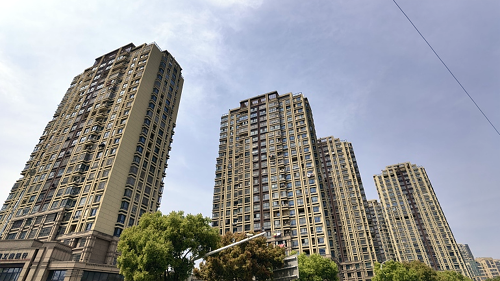China has actively rolled out targeted measures such as relaxing restrictions on purchases or sales, adjusting housing provident fund policies, and lowering mortgage interest rates to better cater to the residential buying market, and boost the development of the property market.
Beset by factors such as COVID-19, an expected fall in personal income and debt default risks of certain property developers, China’s real estate market has seen contractions this year.
In the first four months of the year, commercial housing sales dived 20.9 percent in terms of floor area and 29.5 percent in terms of value.
While reiterating the principle that “housing is for living in, not for speculation,” a key meeting of China’s top decision-makers held last month called for efforts to improve real estate policies, an important underpinning for the economy.
China’s property industry, with a size of 10 trillion yuan (about 1.48 trillion U.S. dollars), involves scores of subsectors across the supply chain. Official data showed that the industry’s value-added output accounted for 6.8 percent of the country’s gross domestic product in 2021.
At the State Council’s executive meeting on Monday, the country once again stressed that city-specific policies will be adopted to meet people’s basic housing needs and their wish to improve housing conditions.
As of May 25, 20 Chinese cities had relaxed restrictions on house sales, data from the China Index Academy showed. “The relaxation of sales restrictions can increase housing supply in the short term, improve the liquidity in the second-hand housing market, and further release demand for better housing conditions,” said Guan Rongxue, an analyst with the Zhuge House Hunter, an online property platform. – CGTN
- Latest
- Trending





